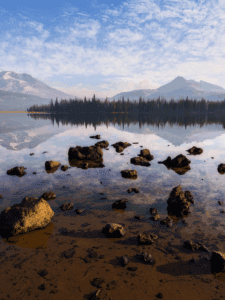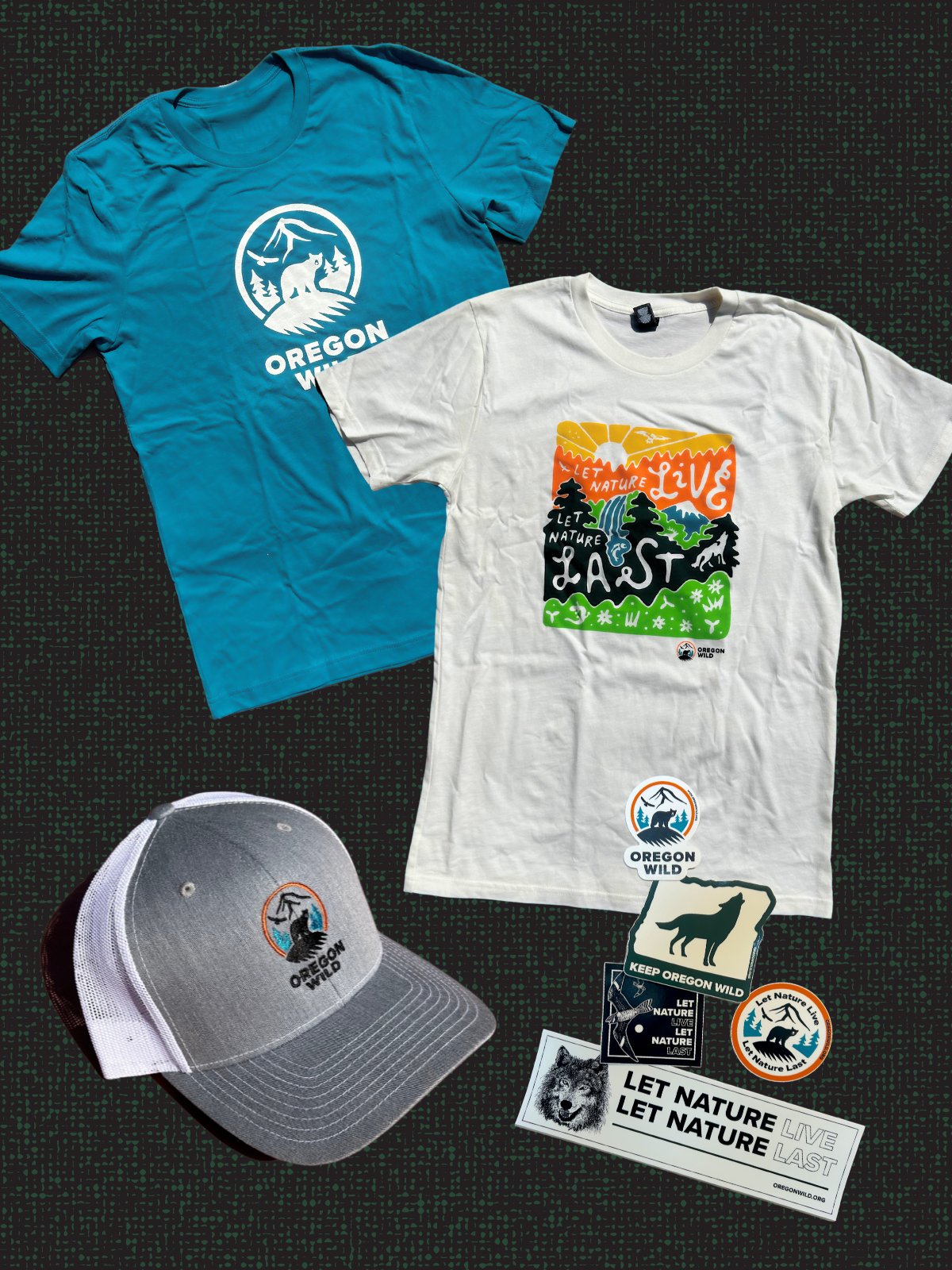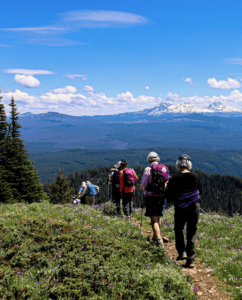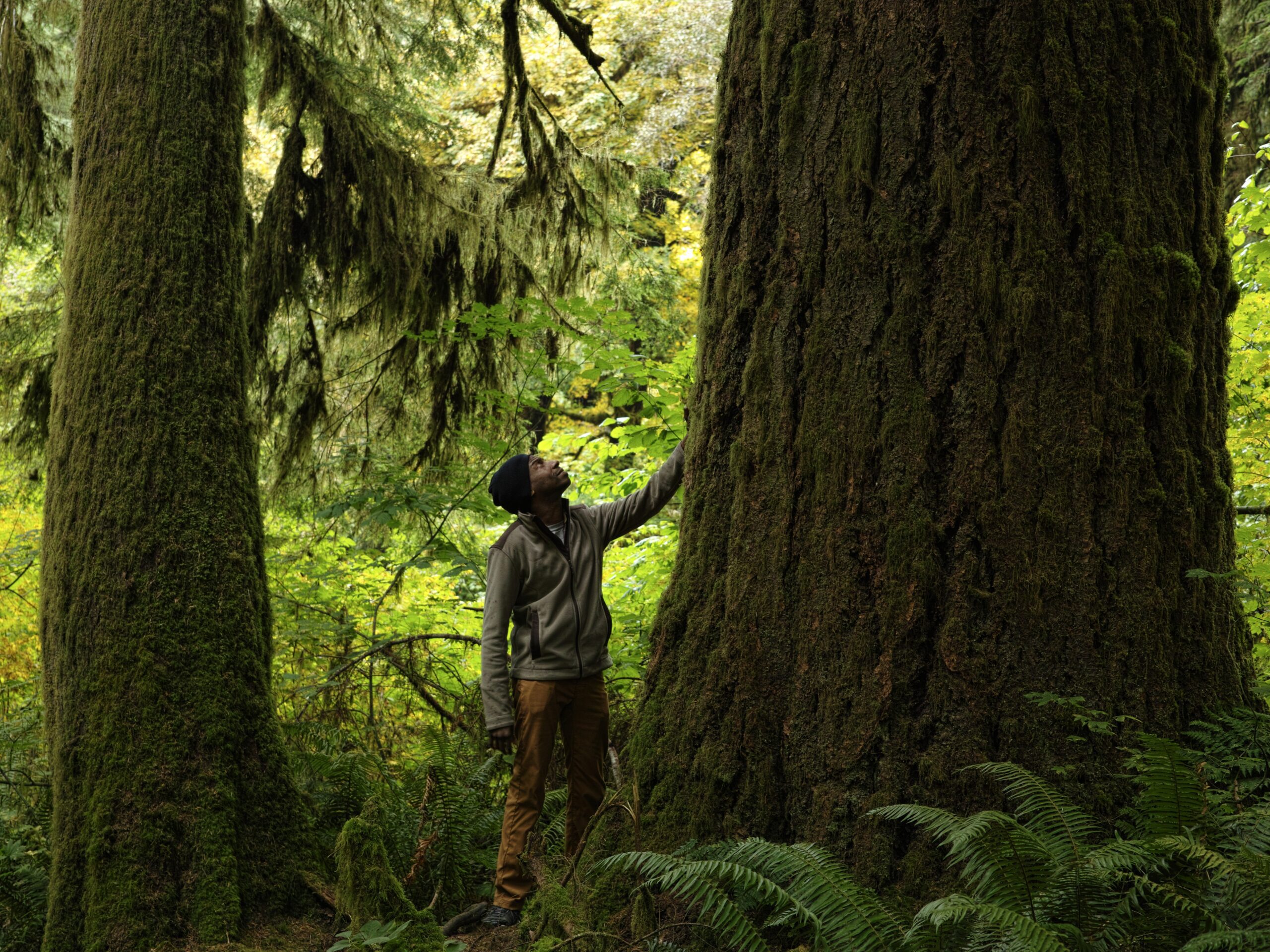
Equity, Diversity, and Inclusion
As Oregon Wild works to protect and restore the parts of the natural world that do not have a human voice, we strive to remember that humans are not separate from, but a part of nature. This interconnectedness pushes us to conceive of a more intersectional way of approaching our work.
A conservation movement for all, by all
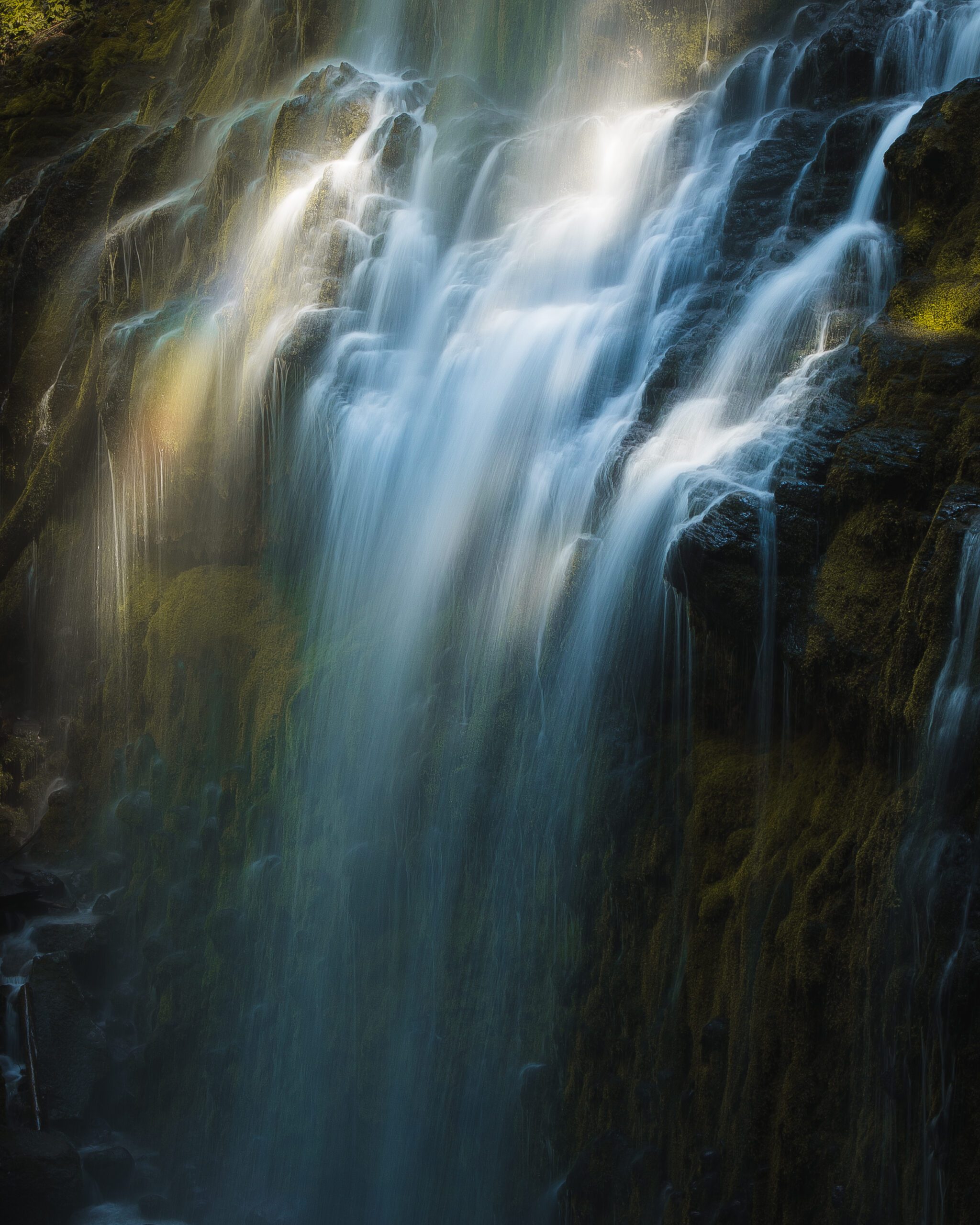
While nature has intrinsic value, its intricate and wondrous systems also provide the foundation for life on Earth – including human life. The places we love to recreate; the landscapes that heal us; the very air we breathe and water we drink – they are all part of the natural legacy that we have inherited from our ancestors and are borrowing from future generations.
As Oregon Wild works to protect and restore the parts of the natural world that do not have a human voice, we strive to remember that humans are not separate from, but a part of nature. This interconnectedness pushes us to conceive of a more intersectional way of approaching our work. Only when everyone who benefits from nature – or is harmed by decisions to destroy nature – is engaged in the effort to protect it, will we reach our loftiest goals.
In recognition of this reality, Oregon Wild is engaged in and committed to internal and external work to make our organization and movement more representative and more inclusive. We hope a conservation movement for all, by all will lead to more equitable access to nature and the benefits it provides while more effectively protecting the wild lands and wildlife that depend on human restraint for their survival.
As we work to galvanize this intersectional endeavor, we have a common culprit that drives exploitation of both people and planet. The legacy and continued echoes of colonialism coupled with unchecked capitalism reduce land and people to commodities. To fight a system that puts profit above people and planet we must build wide and deep coalitions that respond at scale to the forces that would leave us with an unlivable planet.
-
An ugly history
If we are to create movements for nature that are interconnected, representative, and relevant, we must acknowledge and address the ugly history of our nation and of conservation.
The history of the expansion of the United States is a catalog of land theft. The fact that all land in the United States (public or private) was taken by force and broken treaty creates inherent tension for organizations like Oregon Wild that seek to protect public land and ensure the last intact ecosystems in our state and nation are protected from degradation.
It is impossible to disentangle the federal land grab of the 19th century from the creation of public lands. Just as it is impossible to separate the places we live, work, eat, and recreate from that same history. Public lands are now the last, best places for wildlife to survive – and laws like the Wilderness Act, Endangered Species Act, and National Environmental Policy Act helped to halt the destruction. Knowing this, Oregon Wild aims to reconcile the need for land justice for Indigenous people with the need to preserve the wild we have left.
While we recognize this horrific history, we also acknowledge that nine federally recognized tribes, many unrecognized tribes, and thousands of Indigenous people in Oregon have enduring and current relationships with the land. We do not speak for them. They have their own stories and knowledge that are uniquely theirs to tell and share as they see fit. Oregon Wild believes that we have much to learn from Indigenous communities about their relationships with the land; and traditional knowledge of places, species, and plants.
Even as federal and state governments established public lands, the public was not always equally welcome. Government enforced segregation and informal (but no less brutal) exclusion of people of color from parks, forests, and natural areas turned places that should have provided peace and solitude into places of fear. At the same time, decision-making processes for land and water (not to mention siting of toxic factories, dumps, and polluting industry) excluded those impacted and oppressed.
Sadly, oftentimes the conservation movement perpetuated this exclusion. Early leaders of the conservation movement promoted racist ideologies and viewed their mission as protecting land for use by only a chosen (read: white and often exclusively male) few.
Today, Oregon Wild and our diverse allies are changing the narrative and putting our commitments to equity, diversity, inclusion, and justice into action. We have a long way to go to create a society, a conservation movement, and an organization representative of all.
-
Oregon Wild actions and commitments
Internal systems and processes:
- Diversity of representation on staff and board – You can’t set goals for what you aren’t even tracking, so starting in 2020 Oregon Wild began annual internal demographic surveys to track our board and staff makeup in terms of age, race, gender, and sexual orientation. Our desire is to have our staff and board makeup be broadly representative of our state demographics to ensure that diverse perspectives enhance our work. We also want to ensure that potential members and supporters can see themselves represented in the conservation field.
- Hiring practices – We have evolved our hiring practices to align with best practices, including: focusing job postings on skills not formal education; transparently posting salary range and not asking candidates for prior salary information; running all job descriptions through gendered language filters to reduce bias; ensuring diverse hiring teams; allowing more time for job postings in diverse job boards; and more. We are lucky to have many long-serving staff who have dedicated their lives to the conservation movement and to Oregon Wild, so we don’t expect instant results in diversifying our team. But, we believe that the best practices and intentionality we are bringing to our recruitment and hiring efforts will pay dividends as the years go by.
- Intern recruitment – Speaking of best practices, since 2021 we have made all intern positions at Oregon Wild paid (we used to only offer college credit). Relying on college students to work for free generally screened out candidates who couldn’t afford to go without a paycheck during their summer. Also in 2021, Oregon Wild began participating in the Emerging Leaders Program (now called The Script) dedicated to connecting BIPOC college students to internships at non-profits and companies across Oregon. This program allows Oregon Wild to support a movement to increase opportunities for young professionals of color who might not have otherwise had opportunities in the conservation movement.
- EDI Committee – After our first all-staff, all-board intensive EDI training in 2017, we established an EDI Committee to support the ongoing evolution of our organizational EDI work. The EDI Committee consists of employees and board members who bring lived experience, passion and expertise to the ongoing development and implementation of internal EDI objectives for Oregon Wild. The EDI Committee work in recent years has included: drafting and overseeing implementation of an organization-wide and multi-year EDI plan, bringing in recognized experts for staff and board EDI trainings, organizing completion of an internal Compensation Equity assessment, and facilitating mutual mentorship exploration within the organization. The committee supports organizational goal setting, training, progress tracking, and more. The committee serves as an invaluable platform to ensure that our EDI work is prioritized year over year. While the committee drives policy and goals, the entire staff has infused equity goals into our work to ensure that EDI work does not only live within the committee but shows up across the whole organization.
- Professional development – Through the EDI Committee, Oregon Wild has facilitated all staff and board EDI training with recognized experts in the field. Staff and partners have also been supported with additional training and development opportunities for EDI expertise including the Green Latinos conference and the Tribal Relations Certificate Program at Portland State University.
- Compensation Equity – Oregon Wild is committed to providing equitable compensation to all staff regardless of any protected status, and conducts regular compensation equity assessments to ensure equitable pay among all staff job tiers and pay transparency for individual staff members.
-
Where and how we show up
We firmly believe that to live up to our equity ideals, we must seek out diverse perspectives and listen. It also means that we don’t need to insert ourselves into places where community-led organizations or impacted individuals are better equipped to lead.
This means that we are attuned to who might not be at the table when decisions are being made and advocate for decision makers to include the voices of Tribes, impacted communities, and those who have traditionally been excluded. It also means that we think about where we host events, who presents at our events, and how we are reaching audiences that might care about our work. As of August 2024, 25% of our webcast presenters have been BIPOC and/or members of the LQBTQ+ community.
We have strong and growing partnerships with community organizations working at the intersection of communities of color and the outdoors (Vive Northwest, Soul River, Inc., and Vamanos Outside to name a few). We work hard to elevate their work so that they can lead in the communities they know best. This can take the form of fiscally sponsoring a grant application, paying the cost of renting an event venue, connecting an organization with a key decision maker, or advocating for their priority issues.
In our advocacy work, we are acutely aware that the quality of future policy for nature and humanity relies on a healthy democracy. We’ve seen how unchecked corporate influence and anti-democratic policies can prevent the will of the people from being realized. Because of this, we have made common cause with organizations like the Western States Center who fight extremism and hate in our politics and Ranked Choice Voting Oregon to ensure better representation among our elected leaders.
